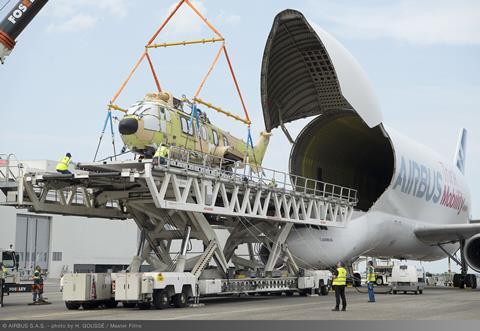HLPFI’s sister title Air Cargo News has reported that Airbus will close its Airbus Beluga Transport operation, which was intended to cater to demand for outsize cargo carriage.

Outsized air-cargo service Airbus Beluga Transport (AiBT), operated by Airbus Transport International (ATI), was launched in January 2022. The A300-600ST Beluga aircraft, which until 2021 were used to carry aircraft parts for Airbus, were officially transferred from ATI’s fleet register to AiBT’s after Airbus announced in January 2024 that AiBT had secured its air operator certificate (AOC), enabling it to operate as an airline using BelugaST freighters.
The airframer established the operation as it sought an alternative use for its A300-600ST Beluga fleet, which was withdrawn from its internal logistics network after introduction of the larger A330-700L BelugaXL.
It set up Airbus Beluga Transport as an airline and secured a French air operator’s certificate for the division. But Airbus says the decision has been taken to “terminate” the business.
“All flights operated by the [A300-600ST] fleet are suspended as of now,” the airframer told Air Cargo News’ sister magazine FlightGlobal, confirming a report in the French newspaper Les Echos.
“The closure project has just started and it is too early to predict a completion date,” it adds. “One of our main priorities during this time is to support our employees during the social process.”
It has not elaborated on the reason for the closure, just three years after it started conducting charters to explore the potential third-party market for the aircraft.
Airbus Beluga Transport had intended to use the five A300-600STs to offer transport of loads such as satellites, engines or helicopters, after the availability of other high-capacity types, notably the Antonov AN-124, became scarce.
The A300-600STs were being transferred from the airframer’s internal logistics arm, Airbus Transport International, which ferries aerostructures between the company’s manufacturing facilities.
















